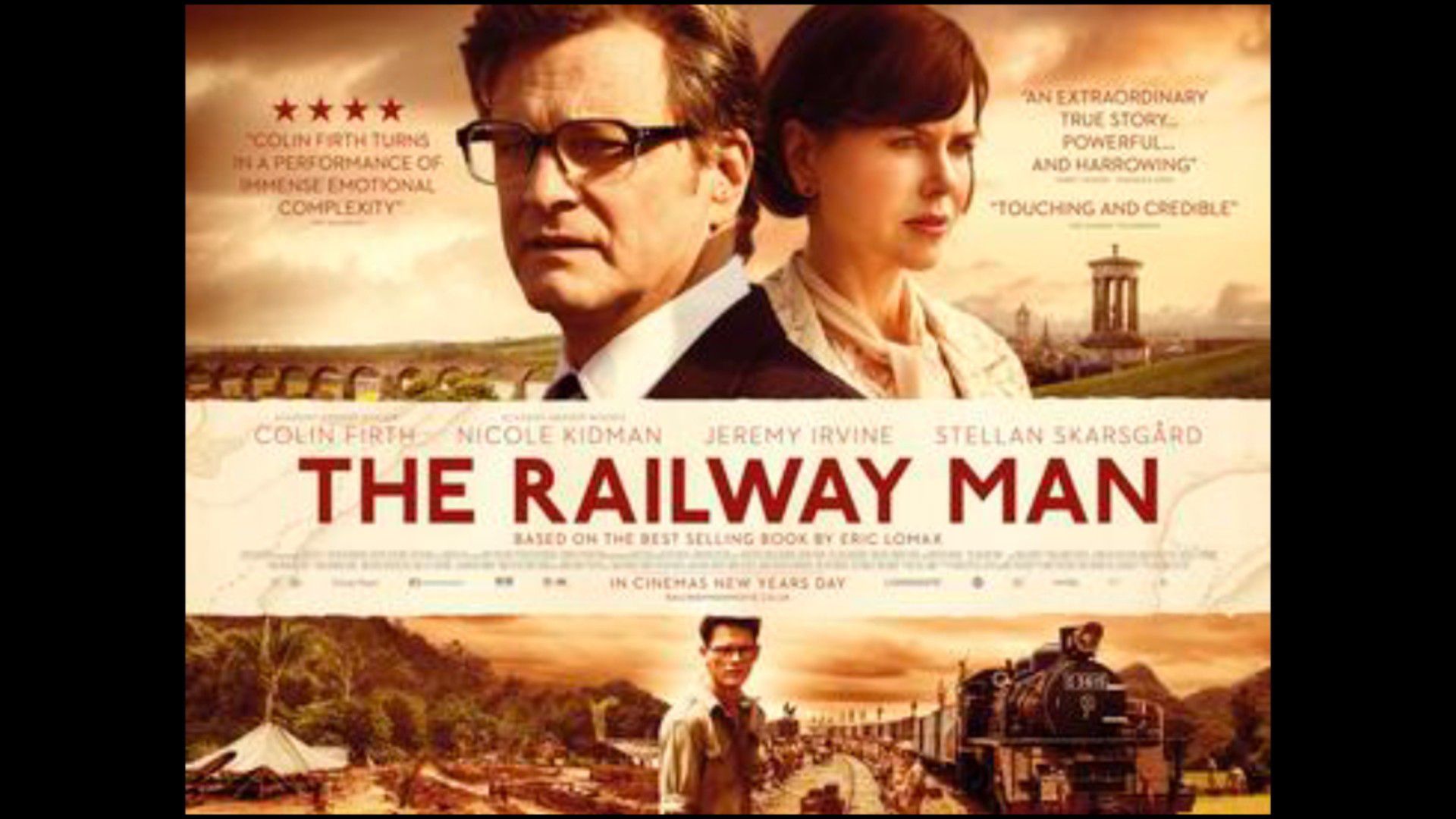The Railway Man (2013)

“The Railway Man,” released in 2013 and directed by Jonathan Teplitzky, is a poignant war drama that delves deep into the psychological scars left by conflict and the journey towards healing and redemption. Based on the autobiographical book of the same name by Eric Lomax, the film stars a talented cast, including Colin Firth, Nicole Kidman, Jeremy Irvine, and Stellan Skarsgård, each delivering powerful performances that resonate with the film’s emotional core.
The narrative centers around Eric Lomax, portrayed by Colin Firth in his later years and by Jeremy Irvine during his youth. The story begins in World War II, where a young Eric Lomax is captured by the Japanese army after the fall of Singapore and is forced into labor on the notorious Thai-Burma Railway, a brutal project infamous for its harsh conditions and high mortality rates among prisoners. This harrowing experience marks the beginning of Eric’s trauma, as he endures unimaginable suffering and cruelty at the hands of his captors.
The film skillfully weaves between the past and present, highlighting how the ghosts of war continue to haunt Eric long after the conflict has ended. In his post-war life, Eric struggles with severe post-traumatic stress disorder (PTSD), which manifests in flashbacks and emotional turmoil. Colin Firth masterfully captures the essence of a man burdened by the weight of his memories, portraying Eric’s vulnerability and inner conflict with authenticity. The film does not shy away from illustrating the lasting impact of trauma, emphasizing how the horrors of war can ripple through a survivor’s life in profound ways.
Amidst this turmoil, Eric finds solace and love in the form of Patti (Nicole Kidman), who becomes his wife. Their relationship serves as a beacon of hope, illustrating the importance of connection and understanding in the healing process. Kidman delivers a heartfelt performance as Patti, embodying both compassion and strength as she supports Eric through his struggles. Their love story adds depth to the narrative, demonstrating that healing is often a shared journey, marked by both challenges and triumphs.

As the film progresses, Eric’s past catches up with him when he learns that one of his former captors, who played a significant role in his suffering, is still alive. This revelation ignites a desire for confrontation and closure, leading Eric to embark on a journey back to Thailand. Here, he faces the demons of his past, as well as the very man who tortured him. This pivotal moment is crucial to the film’s exploration of forgiveness and reconciliation, as Eric grapples with the complexities of his feelings toward his captors and the quest for peace within himself.

Stellan Skarsgård plays the role of a fellow prisoner and friend, providing a crucial link to Eric’s past and highlighting the bonds formed in the face of adversity. Skarsgård’s character serves as a reminder of the shared trauma experienced by many during the war, underscoring the theme of camaraderie among those who endured similar horrors. The film portrays how these connections can provide strength and support, even long after the war has ended.

Visually, “The Railway Man” is striking, with cinematography that captures the contrasting beauty of the Thai landscape and the brutality of the experiences that unfolded there. The lush scenery serves as a haunting backdrop to the narrative, emphasizing the juxtaposition between the tranquility of nature and the violence of war. The film’s score complements the visuals, enhancing the emotional weight of key scenes and drawing the audience deeper into Eric’s psychological landscape.

In conclusion, “The Railway Man” is a powerful exploration of the enduring impact of war and the quest for healing and redemption. Through the performances of Colin Firth and Nicole Kidman, the film poignantly illustrates the complexities of trauma, love, and forgiveness. Jonathan Teplitzky’s direction skillfully balances the film’s darker themes with moments of hope and resilience, creating a narrative that is both heart-wrenching and uplifting. As Eric Lomax confronts his past, “The Railway Man” serves as a reminder of the human capacity for healing, even in the face of unimaginable pain. It is a testament to the power of love and understanding in overcoming the scars of war, ultimately portraying a journey that is as much about inner peace as it is about confronting the ghosts of the past.
Suggested videos for you:
Suggested videos for you:











